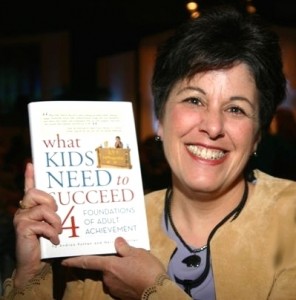
Photo credit: Tyne & Wear Archives & Museums
Everything we accomplish begins in our mind’s eye. Don’t believe me? Look at the thousands of dollars adults spend each year on books, seminars and coaching simply to learn how to use this important tool. How many times have you heard a speaker or seminar leader advise you to attach a “vivid, emotional picture” to your goals in order to speed up the process? It’s pretty common — and common sense — advice.
Visualize. Picture. Imagine. Pretend. Fake it ’til you make it.
What do these things have in common? They come pretty naturally to kids. I wonder what would happen if we took steps to reinforce those abilities in childhood — while it’s still easy and natural? And why do we want to preserve constructive imagination in our kids?
When did you first hear that old favorite W. Clement Stone quote, ‘What the mind can conceive it and believe it can achieve’? As adults we learn that being able to picture the end result is an important step in creating motivation to act on our ‘wants.’ We picture ourselves fitting easily and effortlessly into a favorite outfit or skinny jeans to keep our feet moving on the way to the gym. As kids we lie in bed and ‘watch the movie’ of the game-winning catch or being at the center of the big awards ceremony…. over and over and over.
Practicing “imagination plus emotion” also helps build emotional intelligence and strengthen empathy. That’s pretty easy to practice with your kids. After all, as you move through the day together you encounter dozens of situations that allow you to ask “how do you think that person is feeling right now?” This can lead to some great conversations about news stories, neighborhood relations, manners, sports score… It’s a way to take almost any conversation with your kids beyond the “headline level.”
Besides, the best way to learn something is to teach it. Practicing visualization skills with your kids could save you a lot of time at seminars and move you closer to your personal goals.
##
Having trouble keeping that inner voice positive? Watch this space for a new book about taming your Inner Critic!









